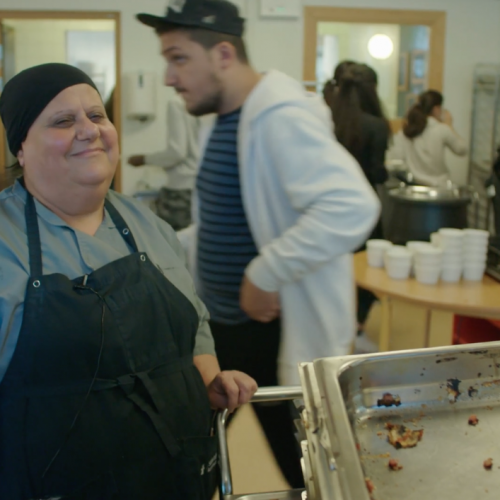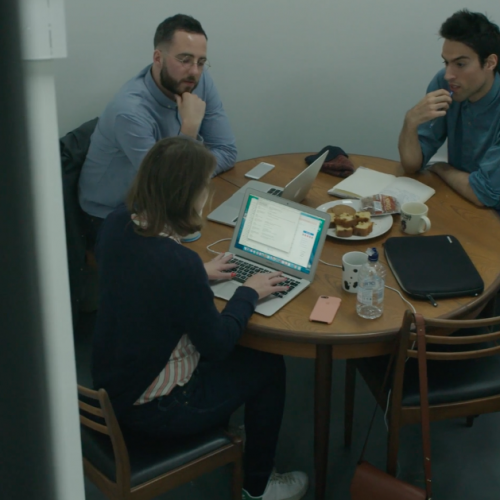The Stand Up Against Sex-Trafficking of Minors
The Stand Up Against Sex-Trafficking of Minors is charity that supports the victims of illegal sex-trafficking and improving the sexual rights of minors such as children. They specialise in helping the teenage female victims, and monitoring and reporting the current system gaps allowing perpetrators to commit cyber sex crimes.
Bottom line
Although all the children caught up in sexual crime are victims, still in many countries, public perception and legal frameworks accuse them of voluntary involvement. As a result, sufficient support cannot reach victims and perpetrators are not penalised enough to stop their casual sex trafficking. Moreover, unregulated online sites and chatting apps provide abusers easy contact points to vulnerable children. New attempts by the Stand Up Against Sex-Trafficking of Minors emphasise to support victims holistically and develop new smartphone apps to monitor, stop and report crime scenes easily and quickly to legal guardians and police. It could result in meaningful advancement in tackling these kinds of vile crime.
Why is matters?
Child sexual exploitation has been prevalent for a long time.
Legal Gap in stopping child sexual exploitation
- In many cases of child sexual exploitation, child victims are accused of encouraging perpetrators to abuse them through their behaviours like wearing revealing dresses or hanging out with the wrong people. However, these victims initially fall in this trap as they genuinely believe the abusers love them. After it, with continuous blackmail and escalating abuse, they are often coerced into having further sex.
- Under a circumstance of power imbalance, abusers provide a little financial reward to victims. In this case, victims are regarded to consent having sex, even worse, be complicit in the sexual trafficking crime. Although it is quite clear that children victims (age under 18) usually start their sexual encounter without the clear realisation of sexual exploitation, in many countries including Korea, these children are accused as prostitutes. They are not treated as victims to be protected.
- This kind of perception leaves a big gap in the children protection act in many nations. Often it distinguishes between whether children victims had sexual encounters voluntarily or were forced to have it with coercive control. In the former case, victims lose various supporting opportunities, and abusers receive mild punishment, which cannot stop similar crimes.
- Some nations like Sweden and UK recognise the severity of this issue and legislated to prohibit trading sexual services and criminalise coercive control, acts used to harm, punish or frighten victims into capitulation. Many children right activists across the globe are making significant efforts to amend children protection act or enact new acts which could consider all children sexual encounters with adults to be judged as criminal exploitation.
Cyber Sex Crime
The recent report shows that over 95% of all child sexual exploitation in Korea took place in online.
- The technologies provide the speed and scale to reach out to vulnerable targets, allow offenders’ anonymity, and boost illegal sex-trafficking to become a widespread illegal sex industry. This situation calls for urgent and innovative thinking and action to protect vulnerable children.
- Through smartphone chat apps, many teenage girls who are often bored with their daily life or left by themselves start chatting with strangers. The strangers offer friendly chatting and demand to meet up, exchange girls’ photos or videos in return of financial rewards. As these apps do not require the legal ID verification, anyone can easily register with its anonymity and start chatting with a stranger with a secret message. This feature easily leads teenage girls to meet up strangers for fun and end up having a sexual encounter.
- While IT companies which developed these applications are aware of these problems, they hardly change the apps to stop these kinds of crimes spreading through their apps. In most cases, they know that there is no legal restriction for the apps to provide such features, and they are even incentivised to strengthen such features further.
What’s happening?
- The Stand Up Against Sex-Trafficking of Minors provides holistic support to children and youth victims. It includes victim identification, direct support such as legal, medical, psychological, housing, education, and job searching counseling, and organise a diverse range of training courses.
- The Stand Up Against Sex-Trafficking of Minors also runs the cyber peer counseling service that operates online. They are online chats, apps, and message board, and some children and youths had a similar experience reach out their support as online counselors
- The Stand Up Against Sex-Trafficking of Minors are organising a new meetup with female app developers and designers to develop new apps to monitor and report cyber attacks.
Go deeper
- The Stand Up Against Sex-Trafficking of Minors homepage (in Korean)


